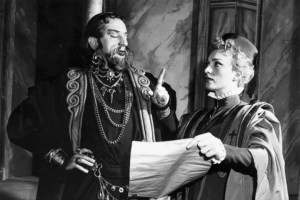Lots of folks go to swingers’ parties; fewer go by accident. I achieved this distinction, once — and in my defense, I will plead only that my ignorance of the situation was so extreme, my credulity so extensive, that it took my asking one couple, in complete earnest, the most hilarious and incidentally incisive questions a person in my situation could ask — “How did you two meet?” and “How do you know the host?” — in order to set the record straight. To the first, the one said that the other’s husband had introduced them. The answer to the second was the old chestnut about “college roommates,” et voilà! At parties nowadays, I just ask people what they do for work.
The experience of seeing George Furth and Stephen Sondheim’s Company is something like inadvertently joining a swingers’ party. At the time of the original production in 1970, Sondheim, who died last November, expressed a desire for those in attendance “to laugh uproariously for two hours and then go home and not be able to sleep.” Doesn’t that sound like a swinging time? I jest only in part. It’s alarming just how provocative this all-too-intimate musical about dating life in the late Sixties remains, more than fifty years on. And if you’ll pardon me for saying so, director Marianne Elliott’s gender-swapped update swings, too: just smart enough for a night on Broadway, yet true to the original, at least in spirit.
The show is famous for being one of the first musicals to ditch linear narrative. In place of the plot, it’s Sondheim’s razor-sharp score that really carries the water. The curtain opens on a surprise birthday party for Bobbie (Katrina Lenk, in the role for- merly known as “Bobby”), an unwed thirty-five-year-old with many married friends and a few love interests, but nobody, it seems, who truly understands. And Bobbie’s social calendar is busy — from scene to scene, number to number, she passes from the company of one married couple to another, and then to a lover, and then back, and back again. Each vignette is beautifully constructed, but like the snow in Paris, Bobbie is spread so thin that nothing sticks. She socializes to escape herself: “One’s impossible, two is dreary/ Three is company, safe and cheery.” It’s a similar dynamic, I think, that had many Sondheim fans hooting and clapping like seals before the curtain even got off the ground.
Okay, another swinging joke: how did the new Company compare? Just fine, I think — some changes worked, some clearly didn’t and a couple left me uncertain. On the plus side, the fairer sex is well represented by this production. As Bobbie, Lenk is charming enough to hold the spotlight but reserved enough to share it as needed. Patti LuPone is inimitable as Joanne, the professional divorcée whose bitchy solo number “Ladies Who Lunch” is nothing short of divine. A third standout was Jennifer Simard as Sarah, whose hilarious physical comedy, including a jiu-jitsu pantomime, thoroughly disarms the audience.
There is, however, a downside to the lead-role gender swap. It has less to do with the protagonist herself than with the roles that had to be changed around her; as a rule, these female-to-male characters fare rather poorly. The most brutally flattened is Andy (Claybourne Elder), Bobbie’s partner in the bedroom scene, a thankless role stuck, among other things, delivering a monologue about a maimed butterfly while half-naked. This conceit might offer a female player the opportunity to show off her range — from naïve and pathetic to coy and seductive. But a man could only play the role as a severely concussed Magic Mike. Did I mention Andy is now a six-foot-four flight attendant?
The glaring exception to the lackluster male characters is Jamie (Matt Doyle), formerly “Amy,” who has second thoughts about getting married to Paul in the show-stopping “Getting Married Today.” This means that Jamie is now a gay man — a switch that works remarkably well, at least until the end of the scene, when he refuses to follow Paul to the church, and Bobbie jumps in and proposes to Jamie… as a joke? It’s apparently enough to snap Jamie out of it, but mark me as dubious.
Also puzzling was the decision, after “Ladies Who Lunch,” to have Joanne offer up her husband to Bobbie for casual sex (in the original, Joanne offers herself to Bobby). The implication is that we can be more open about spouse-swapping today — but the musical is more effective, I think, when it broaches the swinging theme more subtly. I can also admit that, maybe, it’s just not my thing.
This article was originally published in The Spectator’s March 2022 World edition.


















